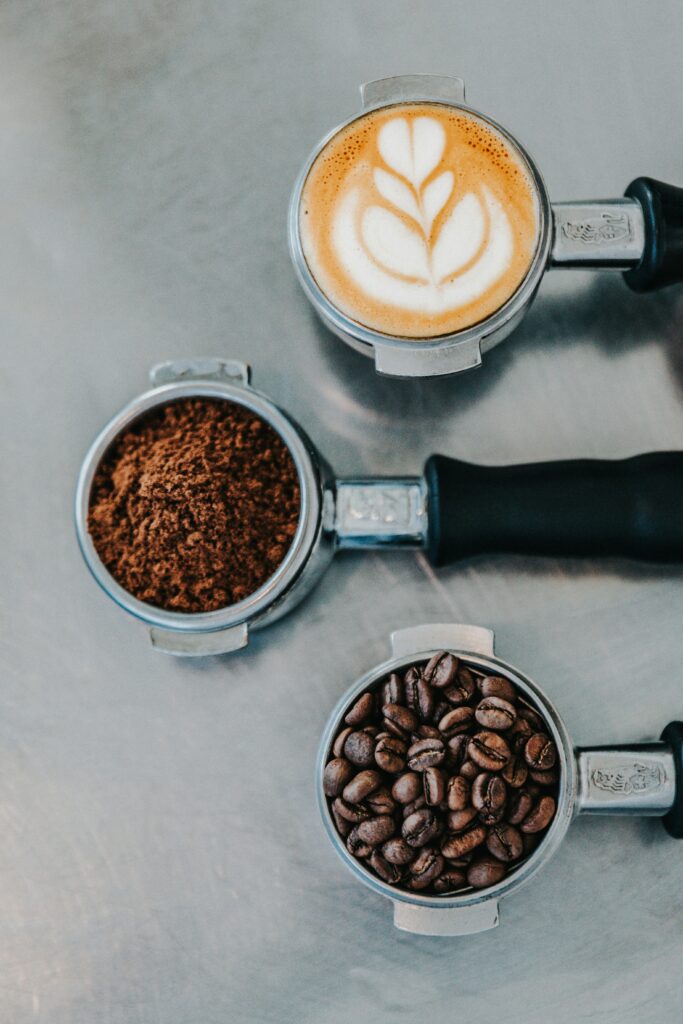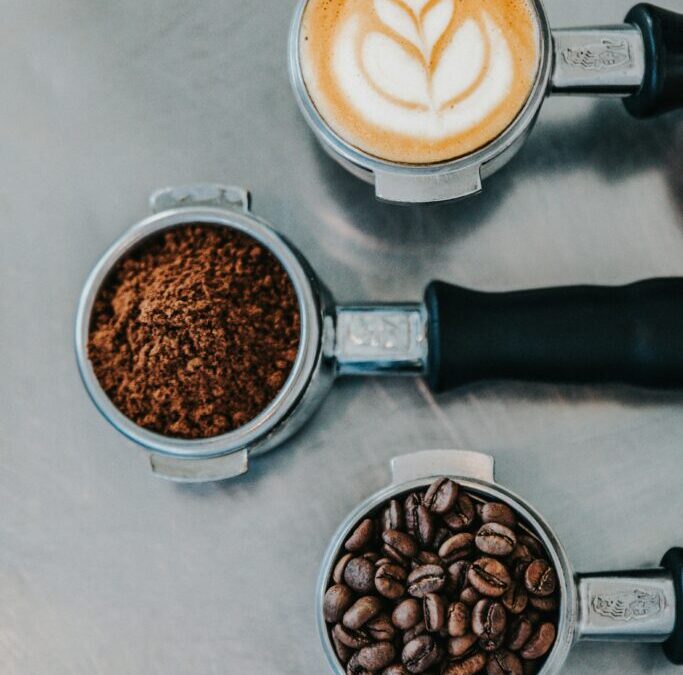
As a tennis player, or a coach, if you are feeling me 95% 🙂 we will have a link between Tennis & Coffee. On the serious note your coffee choice can be more than a morning ritual—it can be a vital part of your training and performance. The right type of coffee, consumed at the right time, it will enhance your alertness, endurance, and even your accuracy on the court.
Tennis Players & Coffee: The Performance Link
For athletes, coffee is a well-researched ergogenic aid, meaning it can enhance physical performance . The primary active ingredient, caffeine, works by stimulating the central nervous system, which can reduce perceived effort and increase alertness .
For tennis players specifically, studies have shown some interesting results:
- Improved Accuracy and Reduced Fatigue: One study on collegiate tennis players found that caffeine consumption did not impair serve accuracy and showed some evidence of reducing fatigue during play .
- Enhanced Alertness and Reaction Time: A 2022 review concluded that low to moderate caffeine intake can improve cognitive functions critical to sports, including attention, vigilance, and simple reaction time . This is the key for tracking a fast-moving ball and making split-second decisions.
- Support for Endurance: Tennis is a demanding mix of aerobic and anaerobic activity. Caffeine has consistently been shown to improve endurance, which can help you maintain a high level of play, especially in long matches .
COFFEE Positives and Negatives
Not all coffee drinks are created equal. Your choice can affect everything from caffeine dosage to nutrient intake.
The Ideal Coffee Protocol for Tennis Players
Choosing the right Coffee is only one part of the equation. Timing and dosage are equally important for maximizing performance benefits and avoiding negatives.
When and How Much to Consume
- Dosage: Research indicates that a dose of 3–6 mg of caffeine per kilogram of body mass is effective for improving performance . For a 70 kg (154 lbs) player, this is 210-420 mg of caffeine, roughly equivalent to 2-4 cups of drip coffee or 3-4 espresso shots. Start at the lower end to assess your tolerance .
- Timing: The most common and effective timing is to consume caffeine about 60 minutes before your match or training session . This allows enough time for it to be fully absorbed into your bloodstream.
- For Recovery: Emerging research suggests that combining coffee with carbohydrates after exhaustive exercise may help speed up muscle glycogen recovery . A latte or a small coffee with a balanced meal post-match could be beneficial.
TennIS PLAYERS Be Aware Of: Contraindications and Negatives
As Tennis players and coaches , it’s important to be aware of its potential downsides:
- Overconsumption: High doses (e.g., 9 mg/kg) can increase the risk of side effects like anxiety, jitters, headache, and an increased heart rate . It can also disrupt your sleep, which is vital for recovery .
- Dehydration and Stomach Discomfort: While coffee in moderation contributes to your daily fluid intake , high amounts can have a diuretic effect. It may also cause heartburn or stomach distress in some individuals, especially before intense exercise or a tennis match .
- Individual Tolerance: Your response to caffeine is unique. Genetics and habitual intake play a big role . If you are sensitive, even a small amount can cause anxiety or sleep disturbances.
- Specific Conditions: People with anxiety disorders, bipolar disorder, bleeding disorders, heart conditions, or diabetes should use caffeine with caution, as it may worsen symptoms .
Perfect COFFEE Serve: Finding the Ideal Coffee
So, which coffee is the ideal match point for a tennis player?
- Pre-Match (60 mins before): For a clean, performance-focused boost without extra calories, an Americano or a small black drip coffee is an excellent choice. If you need a bigger kick and have a tolerant stomach, cold brew is very effective due to its high caffeine and low acidity.
- Daily Training / Lower Intensity: A latte or cappuccino provides a moderate caffeine dose along with protein and calcium, supporting overall health without overstimulation.
- Post-Match Recovery: A latte can be a good option here as well, as the milk provides protein for muscle repair. The Affogato should be viewed as a occasional treat for when you need a large calorie and carb top-up.
Your “ideal” coffee is one that you enjoy, tolerates well, and fits strategically into your training and match-day routine. Experiment during practice sessions to discover what works best for your body and your game.
If you like to learn more
Tennis Fitness : https://www.amazon.com/tennis-fitness/dp/1492867969
Tennis Wellness & Performance : https://www.amazon.com/dp/B0DPL48X51
Mindset : https://www.amazon.com/WHEN-LIFE-SHOCKS-YOU-WHAT/dp/B0D3RBPWFC/
Wellness : https://www.amazon.com/WELLNESS-EVEXIA-365-CCCLXV-Perspective/dp/B0CDZ21SNN/
References :
1.Poole, R., Kennedy, O. J., Roderick, P., Fallowfield, J. A., Hayes, P. C., & Parkes, J. (2017). Coffee consumption and health: umbrella review of meta-analyses of multiple health outcomes. BMJ, 359, j5024
2.Lowery, L. M., Anderson, D. E., Scanlon, K. F., Stack, A., Escalante, G., Campbell, S. C., … & Antonio, J. (2023). International society of sports nutrition position stand: coffee and sports performance. Journal of the International Society of Sports Nutrition, 20(1), 2237952.
3.Ungvari, Z., et al. (2024). Coffee consumption and cardiometabolic health: A comprehensive review of the evidence.
4.Johns Hopkins Medicine. (Current). 9 Reasons Why (the Right Amount of) Coffee Is Good for You.
5.Grgic, J., Grgic, I., Pickering, C., Schoenfeld, B. J., Bishop, D. J., & Pedisic, I. (2020). Wake up and smell the coffee: caffeine supplementation and exercise performance—an umbrella review of 21 published meta-analyses. British Journal of Sports Medicine, 54(11), 681-688.
6.Burke, L. M. (2008). Caffeine and sports performance. Applied Physiology, Nutrition, and Metabolism, 33(6), 1319-1334.
7.Spriet, L. L. (2014). Caffeine and exercise performance: an update. Gatorade Sports Science Institute (GSSI) Sports Science Exchange, 27(128), 1-6.
8.Guest, N. S., VanDusseldorp, T. A., Nelson, M. T., Grgic, J., Schoenfeld, B. J., Jenkins, N. D. M., … & International Society of Sports Nutrition. (2021). International Society of Sports Nutrition position stand: caffeine and exercise performance. Journal of the International Society of Sports Nutrition, 18(1), 1-37.
9.Calvo, J. L., et al. (2021). Caffeine and Cognitive Functions in Sports: A Systematic Review and Meta-Analysis. Nutrients, 13(3), 754.
10.Pomportes, L., et al. (2017). Effects of Carbohydrate, Caffeine, and Guarana on Cognitive Performance, Perceived Exertion, and Shooting Performance in High-Level Athletes. International Journal of Sports Physiology and Performance, 12(Suppl. 2), S2-22-S2-29.
11.Mabrey, G., et al. (2023). The Effect of Creatine Nitrate and Caffeine Individually or Combined on Exercise Performance and Cognitive Function: A Randomized, Crossover, Double-Blind, Placebo-Controlled Trial. Nutrients, 15(8), 1837.
12.Carrillo, C., Gualda, E., Morales, P., & Arribas, S. (2015). The effect of caffeine on performance in collegiate tennis players. Journal of the International Society of Sports Nutrition, 12(1), 44.
13.Guest, N., et al. (2018). Caffeine, CYP1A2 Genotype, and Athletic Performance: An Individualized Approach. Journal of the International Society of Sports Nutrition, 15(1), 1.
14.Klein, C., Clawson, A. J., Renfroe, L. G., Womack, C. J., Tinsley, G. M., & Johnson, S. W. (2016). The effect of caffeine on performance in collegiate tennis players. International Journal of Sport Nutrition and Exercise Metabolism, 26(2), 114–122.
15.Poire, B. P. J., Killen, L., Renfroe, L. G., Womack, C., & Johnson, S. W. (2019). Effects of caffeine on tennis serve accuracy. International Journal of Exercise Science, 12(7), 543–554.
16. Tinsley, G. M., Jones, R. C., Tinsley, B. A., & Johnson, S. W. (2012). The effect of caffeine ingestion on tennis skill performance and hydration status. (Master’s Thesis). Auburn University.
17. Hao, B., Gao, H., Yu, J., Jiang, S., Ma, J., Ding, H., Zhang, J., & Li, Y. (2020). Research on the promotion effect of nutritional supplements on the physical function of tennis players. Progress in Nutrition, 22(4), 1152-1158.
18.Grgic, J., Grgic, I., Pickering, C., Schoenfeld, B. J., Bishop, D. J., & Pedisic, Z. (2020). Wake up and smell the coffee: caffeine supplementation and exercise performance—an umbrella review of 21 published meta-analyses. British Journal of Sports Medicine, 54(11), 681–688.
19.Guest, N. S., VanDusseldorp, T. A., Nelson, M. T., Grgic, J., Schoenfeld, B. J., Jenkins, N. D. M., Arent, S. M., Antonio, J., Stout, J. R., Trexler, E. T., Smith-Ryan, A. E., Goldstein, E. R., Kalman, D. S., & Campbell, B. I. (2021). International society of sports nutrition position stand: caffeine and exercise performance. Journal of the International Society of Sports Nutrition, 18(1), 1–37.
20.Grgic, J., Trexler, E. T., Lazinica, B., & Pedisic, Z. (2018). Effects of caffeine intake on muscle strength and power: a systematic review and meta-analysis. Journal of the International Society of Sports Nutrition, 15(1), 11.
21.Graham, T. E. (2001). Caffeine and exercise: metabolism, endurance and performance. Sports Medicine, 31(11), 785–807.
22.López-González, L. M., Ros-Roca, A., Grgic, J., & Lara, B. (2023). International society of sports nutrition position stand: coffee and sports performance. Journal of the International Society of Sports Nutrition.


